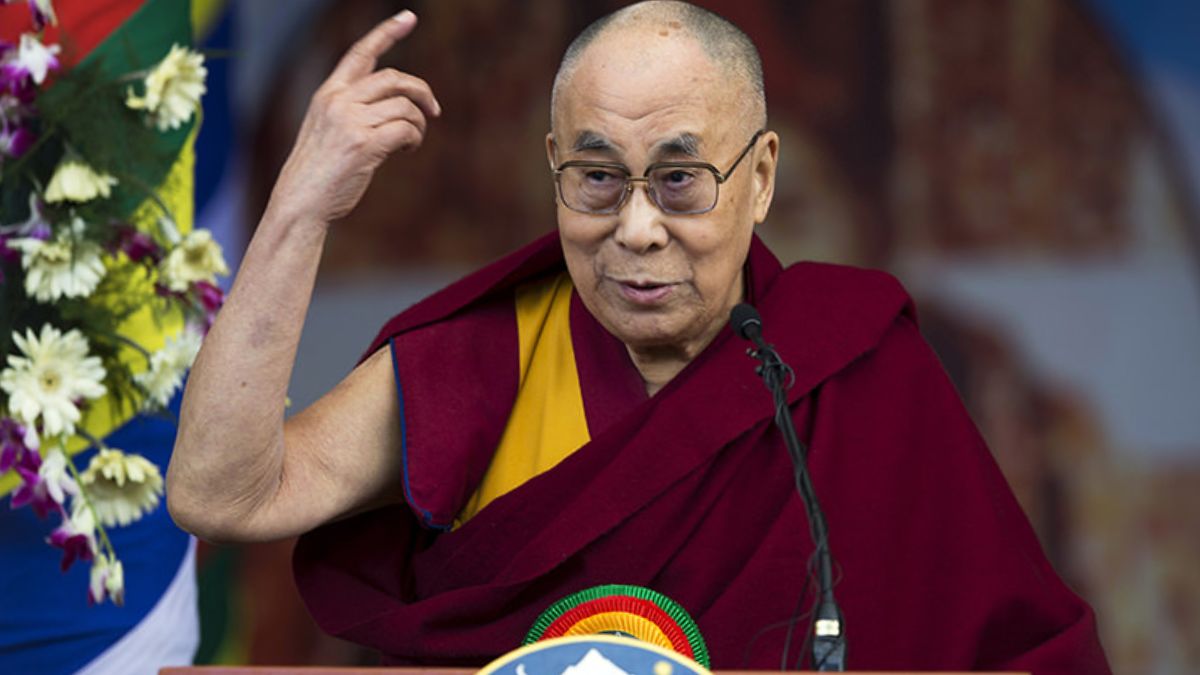Even as the Dalai Lama has assured his followers that he is in good health, the Chinese regime appears to be setting the stage for the succession struggle.
China has maintained from the onset that Tibet has always been an intrinsic part of China and the appointment of Dalai Lama has always been subject to the approval of the Chinese leadership in Beijing. The Tibetans, meanwhile, have maintained that their homeland had never been a Chinese province. They maintain that the issue of Dalai Lama’s success is solely their matter and has no role of Beijing.
As the Dalai Lama is nearing 90, China appears to have started making moves regarding the question of Dalai Lama’s succession.
Wang Huning, the Chairman of the Chinese People’s Political Consultative Conference (CPPCC), the top advisory body in China, attended an exhibition about the reincarnation of Tibetan Buddhist leaders on Monday, according to South China Morning Post.
The newspaper said Wang’s visit was a sign that China was preparing to face the issue of Dalai Lama’s succession ahead of the Tibetan leader’s 90th birthday.
Earlier this week, Dolma Tsering Teykhang, the Deputy Speaker of the Tibetan Parliament-in-Exile, told Reuters that the Dalai Lama could give more clarity on the issue of succession around the time he turns 90 in July 2025.
The Dalai Lama has historically been the religious and political leader of Tibet and its Buddhist natives. Unlike the Pope, who is the leader of world’s Catholic Christians, the institution of the Dalai Lama does not just witness succession but reincarnation. It is believed that every Dalai Lama is a reincarnation of the first. The current Dalai Lama, whose birth name is Lhamo Thondup, is believed to be the 14th incarnation of the first Dalai Lama.
Impact Shorts
More ShortsExtensive preparation underway for Dalai Lama’s succession: Analyst
Wang visited the semi-official China Tibetology Research Centre (CTRC) in Beijing on Monday, according to SCMP.
The CTRC maintains that “the reincarnation of various Dalai Lamas and other significant living Buddhas have historically required approval from the central authorities, and illustrates that Tibet has been an inseparable part of China since ancient times”.
The CPPCC in its official newspaper said that Wang and members accompanying him vowed to maintain national unity and ethnic solidarity, with a focus on “cultivating a strong sense of identity among all ethnic groups concerning the great motherland, Chinese culture, the Communist Party and socialism with Chinese characteristics”.
The SCMP described Wang as the “ideology czar” of the Chinese regime and said cited Tibetan affairs analyst Barry Sautman to report that Wang has been “quite active” in visiting areas with a large Tibetan population, including Garze and Aba in Sichuan with President Xi Jinping and a Tibet Aid Programme conference in August.
As the Chinese regime’s key political theorist, Wang has repeatedly been in-charge of developing theoretical frameworks to counter Western narratives on ethnic minorities in China and articulate Beijing’s position, according to the newspaper.
Serving as a key political theorist for China’s leadership, Wang repeatedly emphasises developing theoretical frameworks to counter Western narratives on ethnic minority issues.
Sautman, a specialist on China’s ethnic minorities at the Hong Kong University of Science and Technology, told the newspaper that since the CTRC was China’s largest institution for Tibetan studies and Wang was a social scientist, the function of his trip could be to “become acquainted” with the centre’s latest research.
Sautman further said, “There is likely to be extensive preparation under way within Tibet-related central government institutions to deal with the issue of the Dalai Lama’s succession.”
What’s the issue with Dalai Lama’s succession?
Shortly after the establishment of the People’s Republic of China (PRC), the Communist Chinese regime turned to subdue China.
The Chinese regime invaded Tibet in 1949-50 and eroded its autonomy by essentially annexed it. Even though the agreement between Tibet and China, the 17-Point Agreement, promised autonomy to Tibetans, the Chinese rulers began a cultural crackdown that led to unrest.
In 1959, after years of Chinese occupation, the Tibetans revolted unsuccessfully against the occupiers. As the occupation forces prevailed, the Dalai Lama escaped Lhasa along with his followers and sought refuse in India. Since then, the Dalai Lama has been based in India where he and his followers established the Government-in-Exile of Tibet.
The Dalai Lama and Tibetans in exile maintain that they retain all rights related to the succession whereas Beijing shares it would have the final say in the matter. As a Dalai Lama appointed by the Chinese regime would be a Chinese stooge and sing Beijing’s tune, the free Tibetans outside of the clutches of Chinese regime’s rule say the appointment would not mean anything.
The Dalai Lama has said that he would leave a will before his death which would mention the issue of succession. He has said that he may even decide to discontinue the tradition of reincarnation.
In 2019, the Dalai Lama told Firstpost’s Madhur Sharma at his home in Dharamshala that he is the final authority, not China.
“The reincarnation of the Dalai Lama, the future of the Dalai Lama, is ultimately in my own hands. At the time of my death, I will write some will. So my rebirth, I think, will somewhere [be in the] Buddhist community. As early as 1969, I made clear even [that whether] the institution of Dalai Lama should continue or not [is] up to Tibetan people. Reincarnation is not important. It’s important that Buddha’s teachings remain,” said the Dalai Lama in conversation with a media delegation to which Sharma belonged.
On other occasions, the Dalai Lama has said that his successor may even be found outside of China-controlled Tibet, perhaps in a free country like India.


)

)
)
)
)
)
)
)
)



